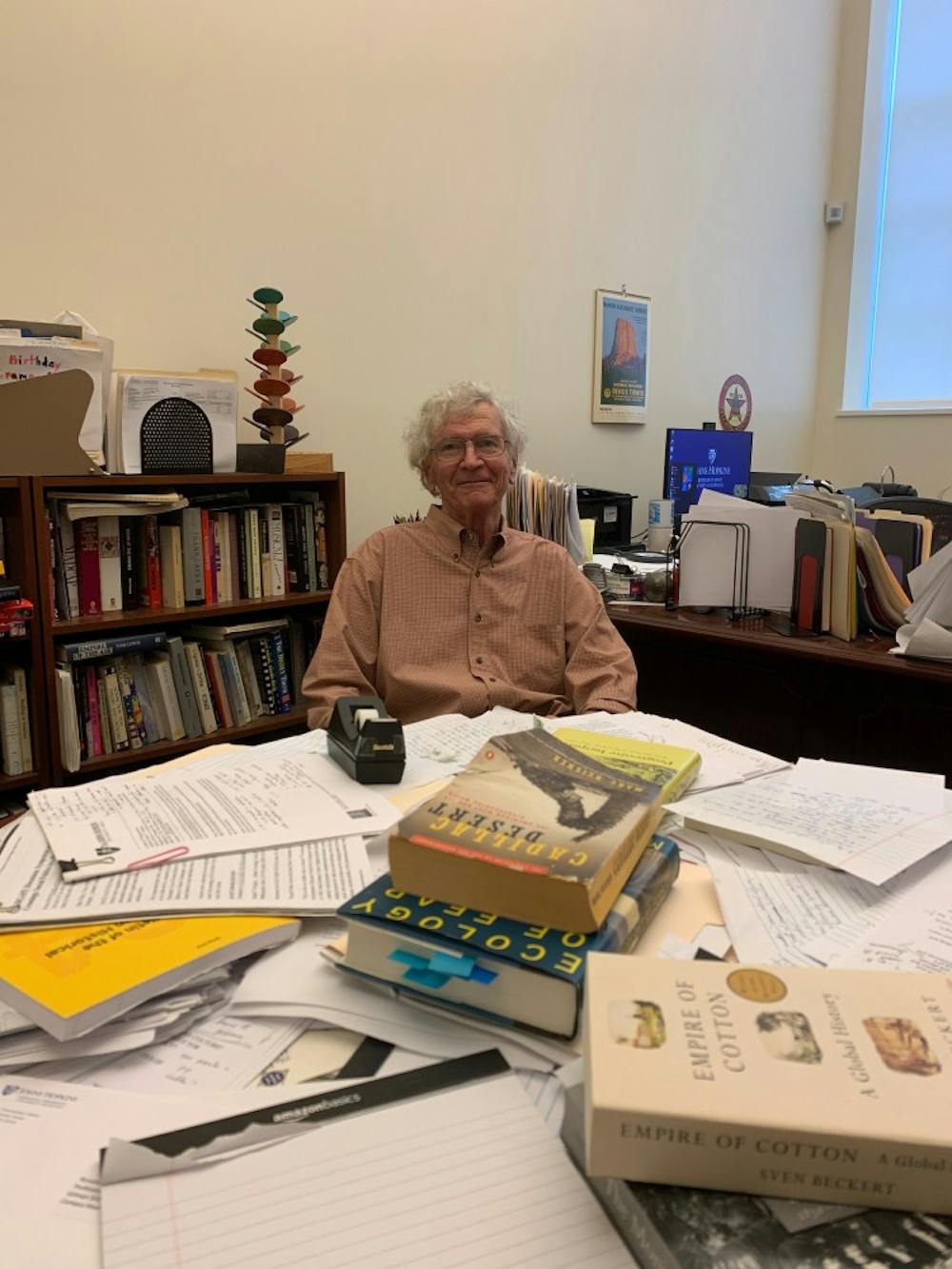
Circumscribed by hundreds of books, Ronald Walters leans back in his chair and prepares to tell his story. From Stanford to Berkeley, where he received his PhD, Walters moved across the country to join the Hopkins staff in 1970, and he is currently a professor of history.
He begins his Hopkins story by saying, “This is where a woman saved me.”
When he was offered the job at Hopkins, he had not finished his dissertation, and he almost decided against the job. Within his group on unemployed graduate school friends, they had taken a vow to stick to their principles.
“[We] wouldn’t go to schools that were racially segregated,” he said.
Walters went a step further, and decided that he would not go to a single-sex school. This meant he could not accept the job at Hopkins.
Women saved him from being jobless because in 1970, Hopkins admitted women as a part of the undergraduate class for the first time. Walters took the job and drove all the way across the country in his little sports car and faced what he described as a “culture shock.” Walters lived in Fell’s Point when it was to be demolished, and he discovered a Greek couple that owned a restaurant, an often empty one because the couple’s son had been murdered.
“[That was] taken as a bad omen,” he explained.
A young man asked Walters to open a bar with him across from the restaurant, and Walters retorted that there were so many bars in Fell’s Point that they would never make any money from it. The young man responded that they would get girls from it. Walters stuck with his job as a professor, and he has been at Hopkins for 49 years since then.
When asked about the changes he noticed on campus with the arrival of women as a part of the undergraduate program, Walters said he observed a teaching assistant (TA) in the classroom one day. The TA asked for someone to write on the blackboard.
“He pointed at the most oafish looking guy there,” he said.
The student replied by asking why there were girls in the class and that one of them could write.
The women faced such hardship. They entered a society that was designed for males and for males only. He said the women were tough and that he is glad he was able to see the process of women entering Hopkins as undergraduates. Now 54 percent of the undergraduate study body is comprised of women.
Hopkins was not adequately prepared for the arrival of women.
“There were all kinds of problems with bathrooms,” Walters said. “There weren’t very many.... The question was: Were there going to be co-ed bathrooms? Nobody wanted that.”
Change was occurring. In the 1970s, Title IX was established, and legislation such as Roe v. Wade was created.
There was some resistance among the alumni. During an alumni event, Walters was asked to be on a panel alongside other professors.
“[There was a] distinguished scholar in the English department who was also a distinguished egotist,” Walters said.
One of the alumni made a snide remark about female undergraduates at Hopkins, and the distinguished scholar replied.
“Well, what’s happened at Hopkins with women is the average [student] is shorter and smarter,” he said.
Walters had a newfound respect for his colleague after that.
He said that some of the alumni he interacted with were happy their daughters could go to Hopkins, and he has continued to see change in the University since 1970.
“By the end of the decade [the women and men] were sitting together,” Walters said.
Walters commented on why it took so long to have an undergraduate program for women at Hopkins.
“That really baffles me, but Hopkins was not unique at all,” he said.
He encountered a woman getting her PhD when he arrived, and she berated him for being at such a sexist institution. Walters responded that Hopkins was changing.
“This is a different Hopkins from the one that I came to,” Walters said.
Hopkins did change, and hopefully progress will continue here. As I enter my third year as a female undergraduate, I think about professors like Walters who witnessed the first class of women undergraduates, and I hope that I can live up to the legacy they have provided.





